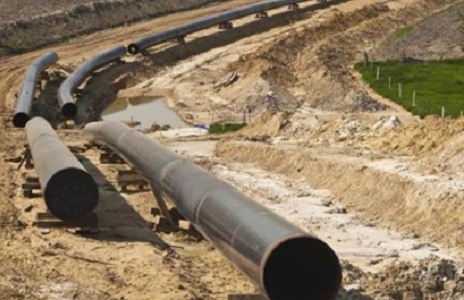In particular, most recently, in September, 2014, TAP’s ESIA in Greece was approved by the Ministry for Environment, Energy and Climate Change.
Secondly, TAP and Greece are in a strong partnership for a project that will bring significant benefits to the country, according to the source.
“During construction and operation TAP will contribute to job creation as well as stimulate foreign investment in the region,” the source added.
Natural Gas Europe earlier reported that the new government in Greece, a coalition of the Leftist party SYRIZA and its junior right wing partner ANEL, appears to be changing course on energy policy with considerable impact on the natural gas sector.
It reported that TAP project may also be facing head winds. In particular, Greek local media reports indicate the Syriza government will request in the short term, an amendment of the clauses that have been signed by the previous administration. Most importantly, those include the payment of transit fees by TAP consortium.
Should these fees be denied, Syriza will then examine the option of taking the subject to the European Court of Justice, since according to the standing EU and Greek law, transit fees are to be requested by the national member states. In this case, several former governmental figures, maybe found liable of damaging the economic interests of the state that is a punishable penal offence, as a Syriza official commented for Natural Gas Europe.
The source in TAP said that European energy regulation (which TAP complies with) does not allow for transit fees.
“However, when the pipeline starts operations, there will be revenues for the host countries in the form of taxes paid by TAP,” the source said.
“In addition to taxes, there will be other economic benefits such as the potential for local employment and procurement,” the source added.
The TAP project was selected by the consortium of Azerbaijani Shah Deniz field development as the transportation route to the European markets.
The approximately 870 km long pipeline will connect with the Trans Anatolian Pipeline (TANAP) near the Turkish-Greek border at Kipoi, cross Greece and Albania and the Adriatic Sea, before coming ashore in Southern Italy.
TAP’s shareholding is comprised of BP (20 percent), SOCAR (20 percent), Statoil (20 percent), Fluxys (19 percent), Enagás (16 percent) and Axpo (five percent). Construction of TAP is planned to begin in 2016.
The initial capacity of TAP will be 10 billion cubic meters per year, but it can easily be expanded to 20 billion cubic meters per year as the new volumes of gas come on stream.
The first sales of Azerbaijani gas to Georgia and Turkey are targeted for late 2018, first deliveries to Europe will follow approximately a year later.
More about:
















































